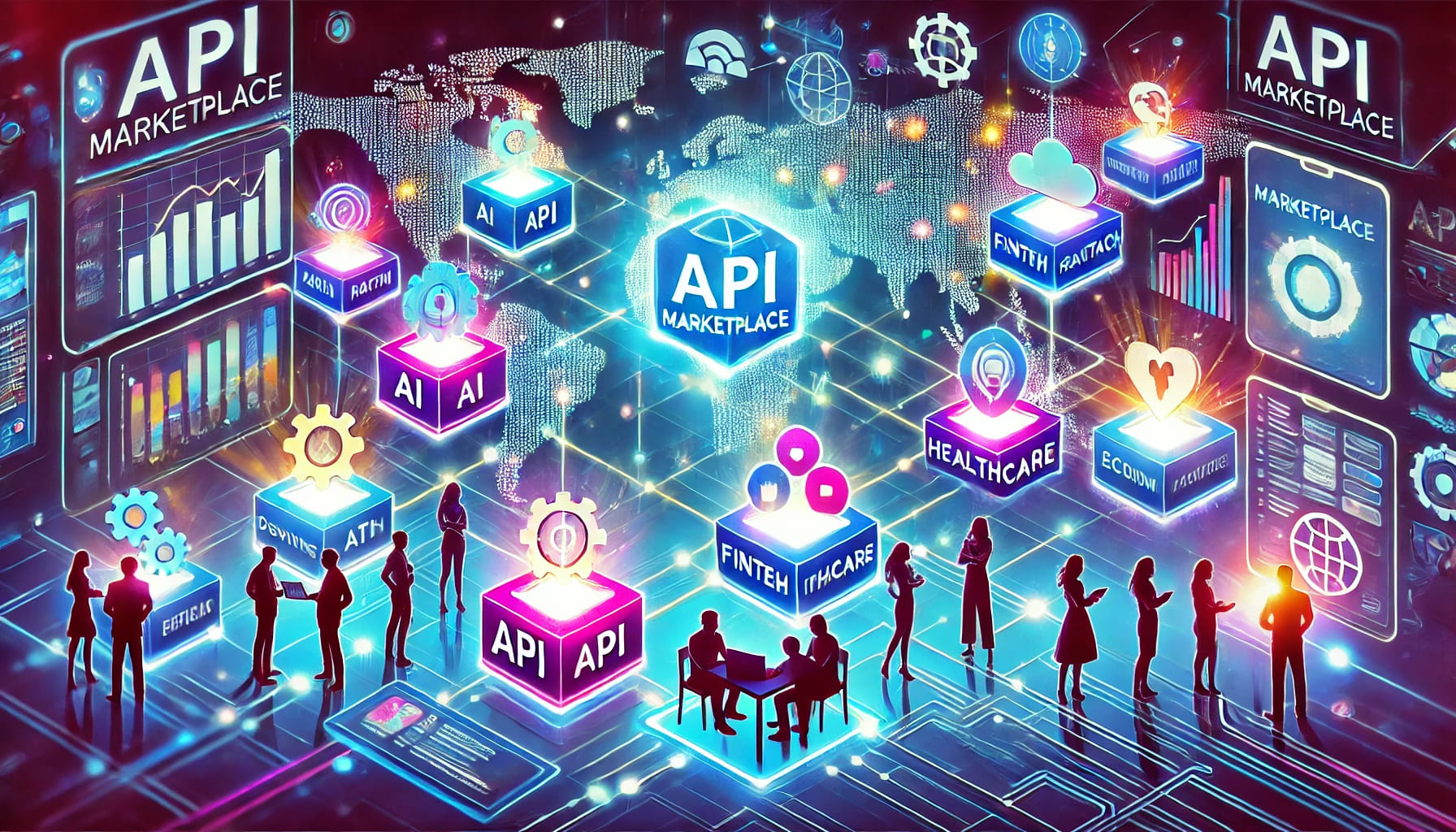“Unlocking Innovation and Collaboration: The Power of API Marketplaces”
Deepak API Marketplace AllThingsDev, API, API integration, API Marketplace, API Monetization, API Standardization, Collaboration, Developer Tools, Free API, Future of APIs, Innovation, Software Development 0
Why API Marketplaces are the Future of Innovation and Collaboration
In today’s rapidly evolving digital landscape, the ability to innovate and collaborate efficiently is crucial for businesses and developers alike. One of the most transformative tools enabling this is the API (Application Programming Interface) marketplace. Platforms like AllThingsDev are revolutionizing how we access, purchase, and integrate APIs, fostering a new era of innovation and collaboration.
The Rise of API Marketplaces
API marketplaces, such as AllThingsDev, have emerged as centralized platforms where developers and businesses can discover, evaluate, and procure APIs. These marketplaces simplify the process of finding the right API for specific needs, offering a wide range of options from various providers. This accessibility is a game-changer, particularly for small and medium-sized enterprises (SMEs) that may not have the resources to develop APIs in-house.
Fostering Innovation
-
Accelerated Development Cycles: By providing ready-to-use APIs, marketplaces like AllThingsDev significantly reduce the time and effort required to develop new applications. Developers can leverage existing APIs to add functionality to their projects quickly, allowing them to focus on innovation rather than reinventing the wheel.
-
Access to Cutting-Edge Technology: API marketplaces often feature APIs that incorporate the latest technological advancements. This access enables developers to integrate sophisticated features such as artificial intelligence, machine learning, and blockchain into their applications without needing deep expertise in these areas.
-
Encouraging Experimentation: The availability of diverse APIs on platforms like AllThingsDev encourages developers to experiment with new ideas and approaches. This experimentation can lead to unexpected innovations and breakthroughs, driving the tech industry forward.
Enhancing Collaboration
-
Connecting Developers and Businesses: API marketplaces serve as a bridge between developers and businesses. Companies can find APIs that meet their specific needs, while developers can reach a broader audience for their creations. This symbiotic relationship fosters a collaborative ecosystem where both parties benefit.
-
Standardization and Interoperability: Marketplaces like AllThingsDev often enforce standards and best practices for API development, ensuring that APIs are reliable and interoperable. This standardization makes it easier for different systems and applications to work together seamlessly, enhancing collaboration across platforms and industries.
-
Community and Support: Many API marketplaces offer community features such as forums, reviews, and ratings. These features provide valuable feedback and support, helping developers improve their APIs and businesses make informed decisions. The sense of community also fosters collaboration and knowledge sharing.
Economic Benefits
-
Cost Efficiency: For businesses, purchasing APIs from a marketplace like AllThingsDev can be more cost-effective than developing them internally. This cost efficiency allows companies to allocate resources to other critical areas, such as marketing and customer service.
-
Revenue Opportunities for Developers: API marketplaces provide developers with a platform to monetize their APIs. By listing their APIs on a marketplace like AllThingsDev, developers can generate revenue from their creations, incentivizing further innovation and development.
Real-World Examples
Several API marketplaces have already made significant impacts on the tech industry. We enable developers to find and integrate APIs quickly and provides a vast array of APIs and other software solutions, helping businesses streamline their operations and innovate faster. AllThingsDev is also making strides by offering a diverse range of APIs that cater to various industry needs.
The Future of API Marketplaces
As technology continues to advance, the role of API marketplaces like AllThingsDev will only become more critical. We can expect to see even more sophisticated APIs, greater standardization, and enhanced features that facilitate collaboration and innovation. Additionally, the integration of AI and machine learning into API marketplaces will likely provide more personalized and intelligent recommendations, further simplifying the process of finding and integrating APIs.
How to getting start with our AllThingsDev MarketPlace
To begin, register an account on the ATD Marketplace platform. Once signed up, you can explore a wide range of APIs. The platform supports real-time API usage monitoring, offering insights like latency, error rates, and call frequency, making it ideal for managing performance at scale.
- Browse APIs: Explore categories or use the search bar to find APIs that match your project needs.
- Test Endpoints: Each API provides a detailed list of endpoints, including required parameters, example responses, and error handling. Use the built-in testing environment to verify functionality.
- Select a Plan: APIs come with tiered pricing plans based on usage. Choose a plan that suits your needs and subscribe to access more advanced features.
Customer Support
AllThingsDev is committed to providing excellent customer support. If you encounter any issues or have questions you can reach out to us, our support team is here to help. You can reach out via email at support@allthingsdev.co and we’ll ensure you get the assistance you need.
Conclusion
API marketplaces are undoubtedly the future of innovation and collaboration. By providing easy access to a wide range of APIs, platforms like AllThingsDev empower developers and businesses to innovate faster, collaborate more effectively, and achieve greater success. As the digital landscape continues to evolve, API marketplaces will play an increasingly vital role in shaping the future of technology.

